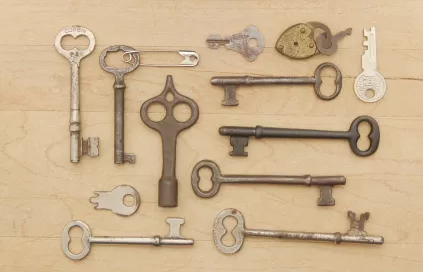As a Baltimore locksmith with years of experience, Mico Locksmith has witnessed firsthand the fascinating evolution of locksmithing. From ancient skeleton keys to modern smart locks, the tools and techniques of this trade have transformed dramatically. Let’s delve into the rich history and advancements that have shaped the locksmithing industry.
Ancient Origins
The roots of locksmithing can be traced back to ancient Egypt, where rudimentary locks were crafted from wood and secured with pins. These locks were simple yet effective in safeguarding valuables.
The Romans later refined the design, introducing metal locks with intricate wards that required specially shaped keys.
Medieval Masterpieces
During the Middle Ages, locksmithing flourished as castles and cathedrals were erected. Elaborate locks with complex mechanisms were created to protect treasures and sacred relics. Skilled locksmiths became revered artisans, their craft shrouded in secrecy.
The Industrial Revolution
The Industrial Revolution ushered in a new era of locksmithing. Mass production techniques made locks more affordable and accessible to the general public. Innovations like lever locks and pin tumbler locks offered increased security and reliability.
The Rise of High-Security Locks
In the 20th century, the demand for high-security locks surged as crime rates soared. Locksmiths responded by developing sophisticated locks with advanced features like multiple locking points, anti-drill plates, and pick-resistant mechanisms.
The Digital Age
The advent of digital technology revolutionized locksmithing. Electronic locks with keypad entry and biometric authentication emerged, offering enhanced security and convenience. The rise of smart homes further propelled the development of interconnected locking systems that could be controlled remotely.
The Future of Locksmithing
The future of locksmithing is poised for continued innovation. Smart locks are becoming increasingly sophisticated, incorporating artificial intelligence and machine learning to adapt to user behavior and enhance security. Biometric authentication methods like fingerprint and facial recognition are gaining traction, offering a seamless and secure way to unlock doors.
The Role of Locksmiths Today
Despite the advancements in technology, locksmiths remain indispensable. Their expertise is crucial for installing, maintaining, and repairing locks of all types. They also play a vital role in emergency situations, providing lockout services and rekeying locks for enhanced security.
Conclusion
From ancient skeleton keys to modern smart locks, the evolution of locksmithing is a testament to human ingenuity and the constant pursuit of security. As technology continues to advance, the locksmithing industry will undoubtedly adapt and evolve, ensuring that our homes, businesses, and valuables
remain protected.


